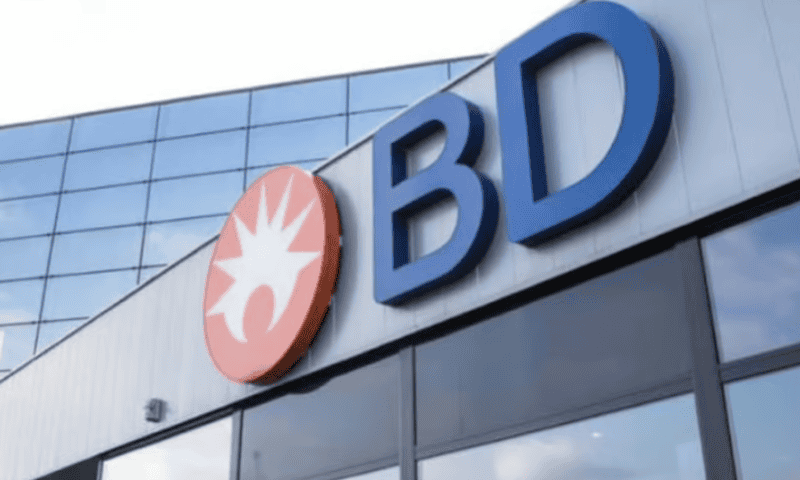As it closes in on its multi-year plan to spur long-term growth by the end of its 2025 fiscal year, BD posted increases in revenues despite the continuing erosion of COVID-19 diagnostic sales.
During the company’s fourth quarter, it collected $5.1 billion, for a 6.8% gain over the same period last year. Excluding COVID testing, that growth rate inched up to 7.3%. Its full 2023 fiscal year earnings came to $19.4 billion—for a 2.7% increase as a whole, or 5.1% for its non-COVID base business.
That amounted to net incomes of $108 million for the quarter and $1.48 billion for the year, with operating costs of $4.74 billion and $17.26 billion, respectively, alongside taxes and other expenses.
“Looking ahead, continued execution of our category leadership strategy in higher-growth markets, advancement of our strong innovation pipeline and delivery against our simplification programs position us well to deliver durable growth in fiscal 2024 and beyond,” President and CEO Tom Polen said in the company’s announcement.
This past quarter also saw BD check off what the company described as its No. 1 priority: a new 510(k) clearance from the FDA for its Alaris infusion pump system, allowing the company to resume shipping and begin device remediation and replacement efforts at the end of September.
The Alaris hospital drug delivery system has seen more than half a dozen serious hardware and software recalls since 2020, in addition to cybersecurity concerns and a years-long hold on distribution. The new green light from the FDA, handed down in July, covers a handful of hardware and software upgrades, as well as new features for built-in patient monitoring, and “addresses all open recalls,” Polen said at the time.
The company also obtained a full FDA clearance in August for its “tripledemic” infection test, which checks for COVID, influenza and respiratory syncytial virus, or RSV. The BD MAX panel received an emergency authorization in February, and the company said there would be no gaps in availability as it shifts over to the newly greenlit version. The combination test previously gained a CE mark in Europe in May 2022.
In the fourth quarter of its 2023 fiscal year, COVID-only test revenues dropped to about $17 million and totaled about $73 million for the year. Meanwhile, the company’s integrated diagnostic solutions unit as a whole posted base business revenues of $909 million and $3.55 billion for the quarter and year, respectively.
In BD’s medical division, its medication delivery unit—which still crossed the billion-dollar mark—saw slight quarterly declines of 0.9% when adjusted for currency changes, which the company attributed to “softness in China driven by market dynamics including volume-based procurement.”
Alongside its medication management offerings, such as dispensing and pharmacy automation and pre-fillable biologic drug solutions under its pharmaceutical wing, BD’s medical arm posted $2.55 billion in revenue for the quarter. Meanwhile, its interventional procedure division, spanning surgery, urology and peripheral vascular care, totaled $1.2 billion in sales.
For its 2024 fiscal year, BD said it expects to clear $20 billion in sales. The company’s guidance predicts revenue growth between 4.5% and 5.5%—with interventional devices coming in above the range, life science and diagnostic sales below, and medical income landing just in line.
The company’s BD2025 strategy, first launched in 2020, has set a target of 5.5% growth by the end of 2025, supported by dozens of new products in the pipeline.
That includes plans for a next-generation infusion pump and an upcoming cell sorter research instrument, as well as a bioresorbable umbilical hernia mesh implant that was recently submitted for FDA clearance. The company had set a goal of 100 launches by FY25 in November 2021.
The strategy has also seen the company narrow its focus—such as through the spinoff of its diabetes franchise, now known as Embecta, in early 2022.

